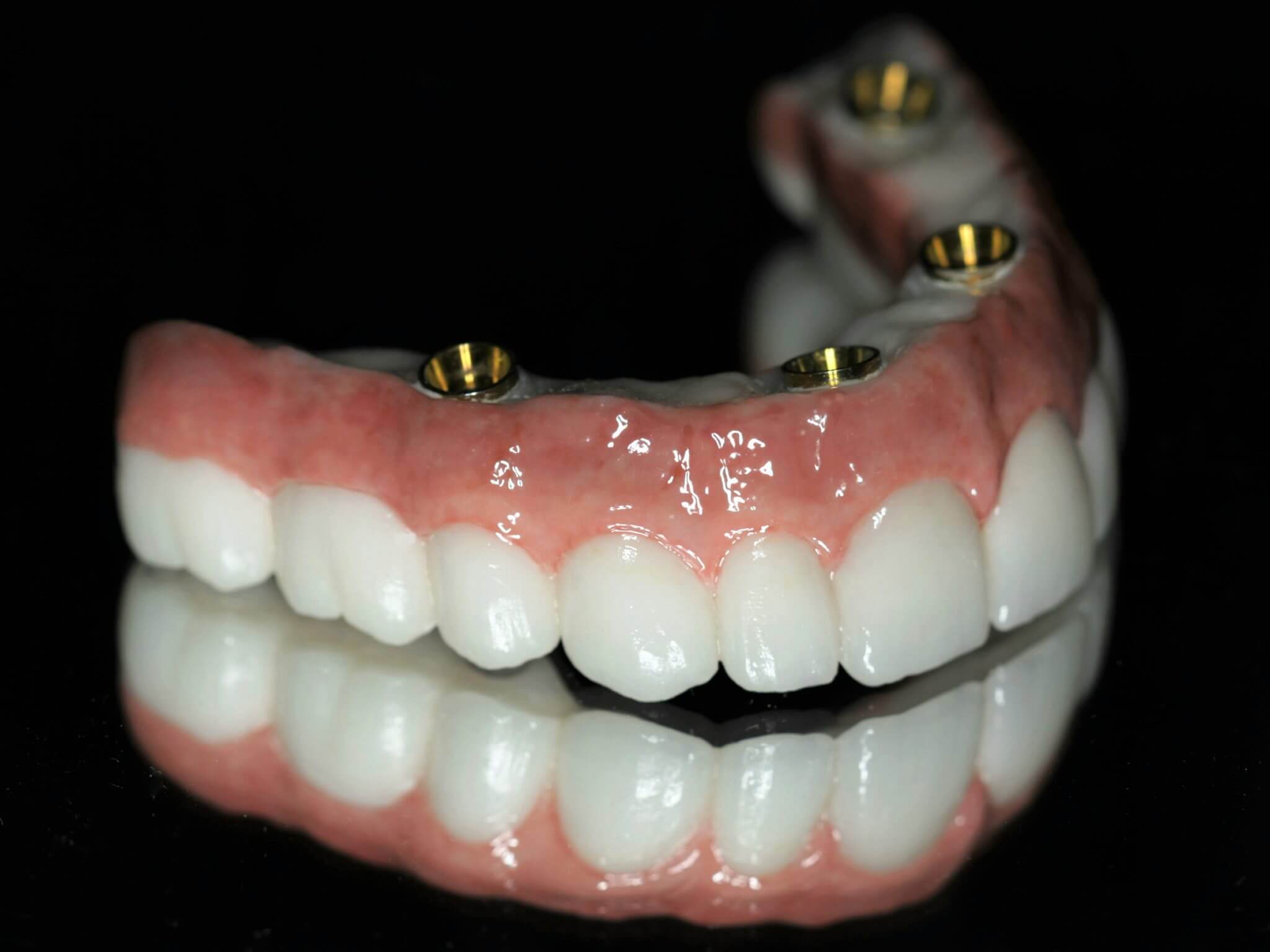The Only Guide for Dental Sense
10 Easy Facts About Dental Sense Described
Table of ContentsWhat Does Dental Sense Mean?Indicators on Dental Sense You Need To KnowThe Main Principles Of Dental Sense The Buzz on Dental Sense
are clinical tools surgically dental implanted into the jaw to recover an individual's ability to chew or their look. They provide support for man-made (phony) teeth, such as crowns, bridges, or dentures. When a tooth is shed due to injury or illness, an individual can experience complications such as rapid bone loss, faulty speech, or adjustments to eating patterns that result in pain.Oral implant systems include a dental implant body and oral implant joint and might likewise include a joint fixation screw. Dental implants. The dental implant body is surgically placed in the jawbone instead of the tooth's origin. The dental implant abutment is usually affixed to the implant body by the abutment addiction screw and expands with periodontals into the mouth to support the attached fabricated teeth
(https://justpaste.it/hj6ob)Structure of The Dental Implant System choosing dental implants, talk with your dental company about the possible benefits and threats, and whether you are a prospect for the treatment. Things to take into consideration: Your total health and wellness is an essential aspect in figuring out whether you are an excellent candidate for dental implants, the length of time it will require to heal, and exactly how long the dental implant might remain in location.
Cigarette smoking may impact the recovery process and decrease the long-lasting success of the dental implant. The healing process for the implant body may take numerous months or longer, during which time you usually have a short-lived joint in location of the tooth. the oral implant treatment: Carefully follow the oral hygiene guidelines provided to you by your dental service provider.
Dental Sense Things To Know Before You Buy
Implant failing can lead to the requirement for one more procedure to fix or replace the implant system. Brings back the capability to chew Recovers cosmetic appearance Aids maintain the jawbone from diminishing due to bone loss Maintains the health and wellness of the bordering bone and gum tissues Assists keep adjacent (neighboring) teeth stable Boosts lifestyle Damages to surrounding natural teeth throughout implant positioning Injury to the surrounding cells during surgical treatment, such as sinus opening Injury throughout surgical treatment (for example, crack of surrounding jawbone) Inadequate function, such as feeling like the teeth do not bite with each other normally A feeling that the tooth hangs or twisting in position resulting from an abutment screw loosening up Implant body failure (looseness of the implant body) as a result of systemic infection, which might be more probable in people with uncontrolled diabetes mellitus as a result of neighborhood infection in bone and gum tissues sustaining the dental implant body because of postponed healing, which may be most likely in individuals who smoke Problem cleaning the periodontals around the implant, causing poor dental health Unattended gum illness Post-surgical feeling numb because of nerve impingement or damage Constantly inform healthcare suppliers and imaging technicians that you have oral implants prior to any magnetic vibration imaging (MRI) or x-ray procedures.
FDA is not knowledgeable about any type of unfavorable events reported for MRI or x-ray treatments with dental implants. Dental implants systems are generally constructed from materials that comply with global agreement requirements of the International Company for Standardization (ISO) or ASTM International. These requirements have information of what makes a safe material.

An oral implant is a structure that replaces a missing tooth. With screw-like gadgets, the doctor inserts a dental implant into the jawbone, and it acts as a support for a man-made tooth, called a crown. A gadget called an abutment attaches the man-made tooth to the oral implant. The crown is tailor-made to fit the person's mouth and match the shade of their teeth.
The Best Guide To Dental Sense
Some individuals are not qualified for dental implant surgery. It is for oral surgeons to operate people with: Full Article intense illnessuncontrollable metabolic diseasebone or soft tissue disease or infectionIf these concerns are solved, an individual can have the surgical procedure. In, dental cosmetic surgeons abstain from operating on people with: If people with any one of the above undergo dental implant surgical treatment, there is a higher danger of the implant stopping working.

Dental dental implant surgical procedure is a tailored process. Offer you time to recover. Attach the post and last crown, bridge or denture.
Next off, your specialist will thoroughly place the oral implant right into your jaw. Your specialist will rearrange your periodontals and shut the incision with stitches. If your dental implant is near the front of your mouth, your dental expert will make a short-term tooth for you to wear up until you heal. In this way, you will not have a void in your smile while you recover.
A Biased View of Dental Sense
Throughout the healing stage, your jawbone must fuse to the oral implant. This procedure can take anywhere from 3 to nine months.
As soon as your implant heals, your dental practitioner can affix the abutment (little port post) and your final repair (crown, bridge or denture). This usually takes regarding one hour to complete and may need a 2nd minor surgical procedure. You shouldn't feel any discomfort during your oral implant treatment because your provider will utilize medicine to numb your gums.